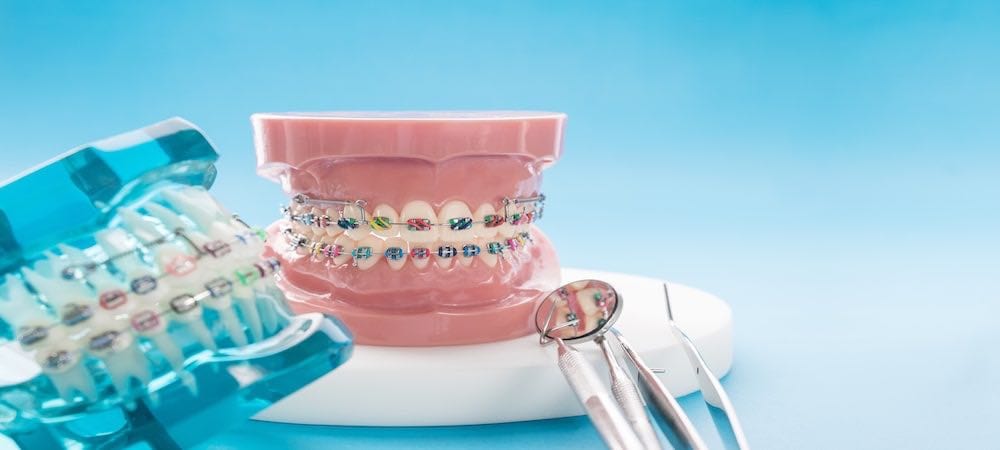Comprehensive Guide to Orthodontics Procedures for Remedying Oral Imbalances
In the world of orthodontics, the trip to attaining a flawlessly aligned smile entails a myriad of treatments customized to correct oral misalignments. From standard braces to unseen aligners and even surgical alternatives, the field of orthodontics offers a series of services to address differing degrees of oral irregularities. Understanding the complexities of each procedure, including their systems, benefits, and prospective drawbacks, is vital in making educated choices regarding one's orthodontic treatment. As we navigate through the extensive overview to orthodontic procedures for dealing with oral misalignments, the detailed details of each technique will certainly unravel, clarifying the path towards a functional and harmonious oral positioning.
Orthodontic Procedures Introduction

Normal changes and surveillance are essential parts of orthodontic therapy to ensure development is on track and to make any kind of required adjustments along the way. By undertaking orthodontic treatments, people can not just achieve a straighter grin yet likewise improve their overall oral wellness and feature.
Typical Dental Braces: Just How They Function
When thinking about orthodontic treatments for oral misalignments, traditional braces stand out as a time-tested approach for correcting teeth placing. Conventional dental braces are composed of brackets, cables, and bands that work together to apply continuous stress on the teeth, progressively moving them into the wanted positioning.
As pressure is used to the teeth with the dental braces, the bone surrounding the teeth is reshaped to sustain the brand-new tooth settings. Patients will certainly need routine changes at the orthodontist's office to guarantee the braces proceed to use the appropriate pressure for efficient teeth motion.
Invisible Aligners: Cons and pros
These clear, customized trays are essentially invisible when put on, making them an attractive choice for people looking for an extra cosmetically pleasing orthodontic treatment. Clients can get rid of the aligners before consuming or cleaning their teeth, decreasing the danger of food obtaining stuck in the appliance and streamlining the cleaning process.

Surgical Orthodontic Options
Surgical treatments in orthodontics existing viable options for addressing complex oral misalignments that might not be efficiently solved with conventional orthodontic treatments. While undetectable aligners and conventional dental braces can correct lots of orthodontic issues, particular cases require medical intervention to accomplish optimal outcomes. Surgical orthodontic choices are typically suggested for severe you can try this out malocclusions, considerable jaw disparities, and situations where the underlying bone framework needs modification to accomplish proper alignment.
One usual surgical orthodontic treatment is orthognathic surgery, which entails rearranging the jaws to fix practical problems such as difficulty chewing or speaking. This surgical treatment is commonly carried out in partnership with an orthodontist that assists straighten the teeth before and after the procedure. Surgical orthodontics may additionally include procedures to reveal influenced teeth, eliminate excess periodontal cells, or reshape the jawbone to create a more unified face account.
Before considering medical orthodontic choices, people go through an extensive evaluation to determine the need and prospective advantages of such treatments. invisalign. While surgical treatment might seem overwhelming, it can significantly improve both the function and aesthetic appeals of the smile in instances where traditional orthodontic therapies drop short
Retainers and Post-Treatment Treatment

Post-treatment treatment involves adhering to the orthodontist's guidelines vigilantly. This might include appropriate oral hygiene practices, attending follow-up appointments, and wearing the retainers as suggested. Failing to adhere to post-treatment treatment directions can result in regression, where the teeth gradually return in the direction of their original settings. Regular retainer wear, excellent oral hygiene, and routine oral exams are vital for keeping the outcomes accomplished with orthodontic surgery and ensuring the lasting stability of the corrected oral placement.
Final Thought
In final thought, orthodontic procedures find offer various options for correcting oral misalignments. Surgical orthodontic alternatives are available for a lot more serious misalignments. In general, orthodontic procedures can successfully boost dental health and visual look.
As we navigate with the comprehensive overview to orthodontic procedures for fixing dental a dental clinic imbalances, the elaborate details of each approach will unfold, dropping light on the path towards a functional and harmonious dental placement. - aligners
One of the most usual orthodontic treatments is the use of braces, which consist of metal brackets and wires that use mild stress to slowly move teeth into the wanted placement.When thinking about orthodontic therapies for oral misalignments, typical braces stand out as a time-tested approach for dealing with teeth placing. Furthermore, unseen aligners may not be suitable for complex orthodontic issues that need even more substantial teeth motion, as they are generally suggested for mild to moderate situations. Retainers are tailor-made orthodontic gadgets developed to hold teeth in their corrected positions after the conclusion of orthodontic treatment.
Comments on “Why Cumming Invisalign is the Perfect Selection for a Discreet Orthodontic Option”